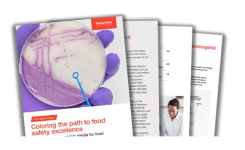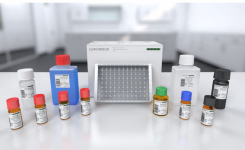Revisiting Best Practices for Respiratory Virus Testing as Flu Season Draws Near
go back to news archives| With flu season upon us, it is important to revisit the topic of respiratory virus testing, considering best methods for detection and treatment. Preventative measures such as frequent and thorough hand washing are the best line of defense against flu. However, despite efforts to avoid infection, labs across the country will undoubtedly see an influx in testing for and diagnosis of respiratory virus infections during flu season. In the September, 2011 Journal of Clinical Microbiology, COPAN's flocked swabs were cited as an important advance in testing for respiratory viruses. The JCM article 'Current Best Practices for Respiratory Virus Testing' by Christine Ginocchio and Alexander MacAdam considers current issues in diagnostic testing for respiratory viruses including best methods for detection, sample handling and testing for antiviral resistance. |
| The goal of the discussion, by the authors and the working group which contributed to the article, was to come to a consensus on the best practices for respiratory virus testing and to raise questions for further consideration. Free educational videos on sample collection and scientific studies are available at COPAN's website (www.copanusa.com). Among the topics outlined in the article were sample collection, transport and storage. Respiratory virus detection hinges on many factors, among them, the type of sample collected, the time to collection after symptom onset, and the transport and storage of the sample prior to testing. Sample collection and storage are critical components to respiratory virus testing. Improper sampling may result in an inadequate sample, rendering a diagnostic test inconclusive or incorrect. There are several upper respiratory tract samples available for testing, including nasopharyngeal washes, aspirates, and swabs. The authors of the Best Practices article concluded that COPAN's nasopharyngeal flocked swabs have been found to yield specimens comparable to the gold standard nasopharyngeal wash for detection of respiratory viruses by NAAT or DNA. |
NOTE: This item is from our 'historic' database and
may contain information which is not up to date.
Source : Copan Diagnostics, Inc. View Company Information
Posted on October 11, 2011
















